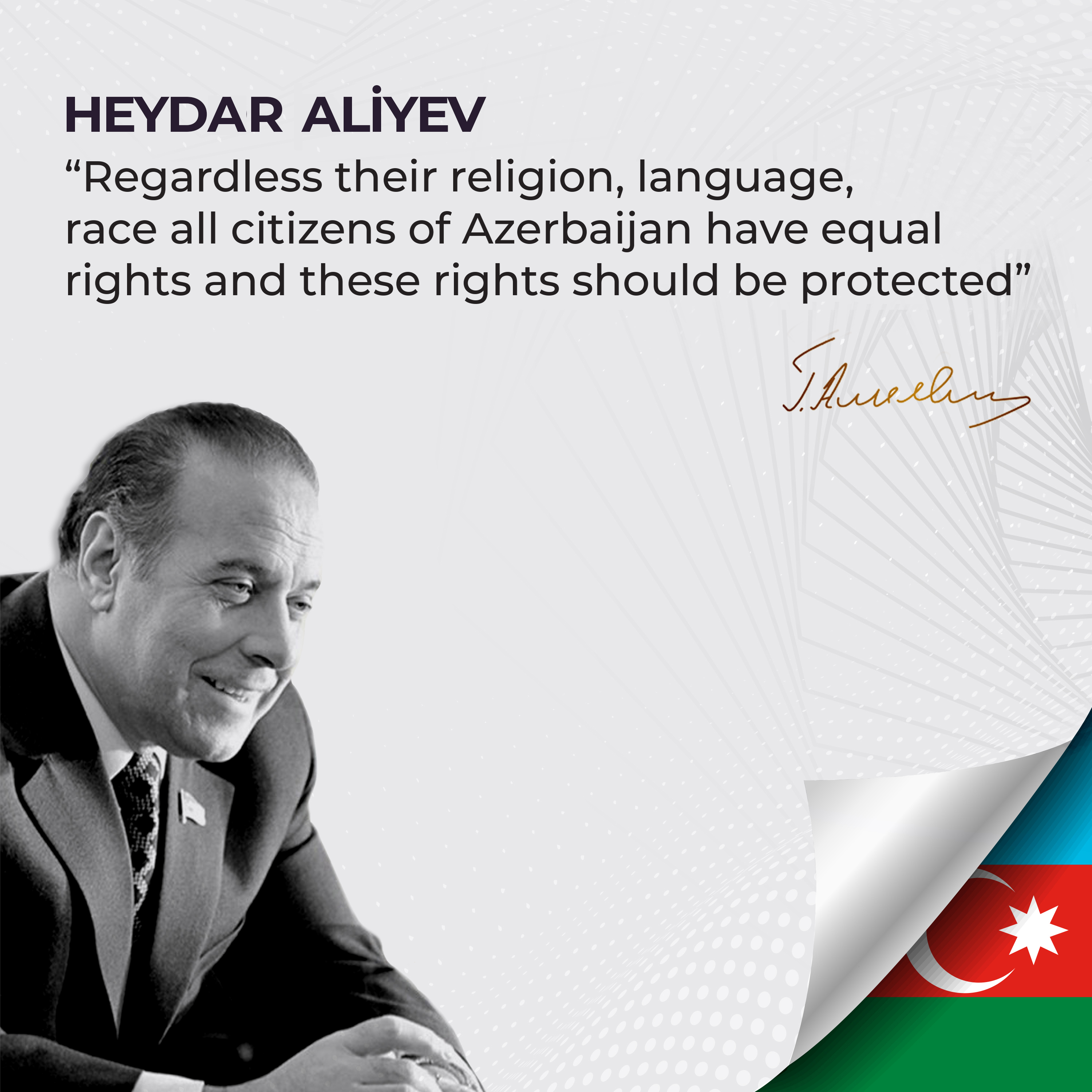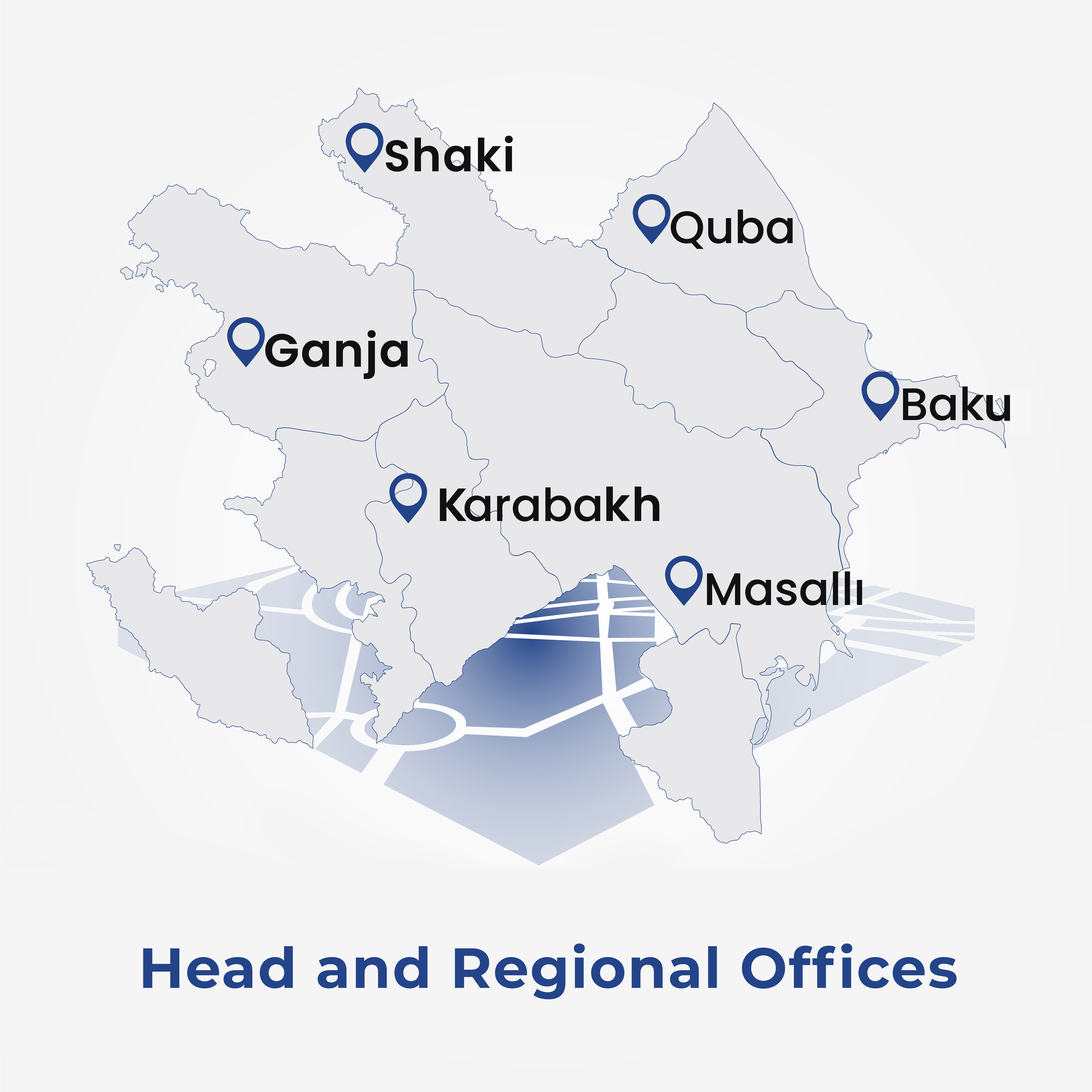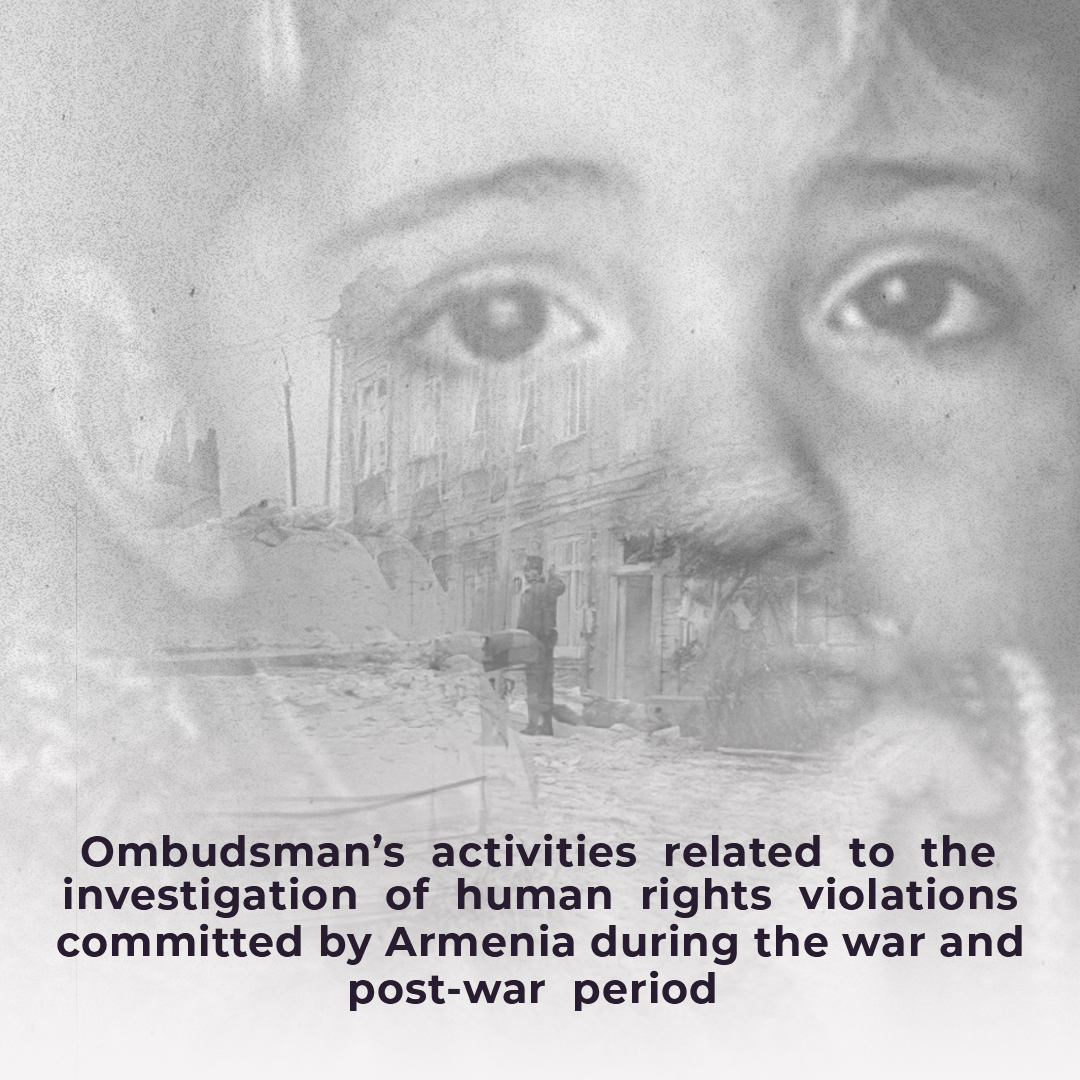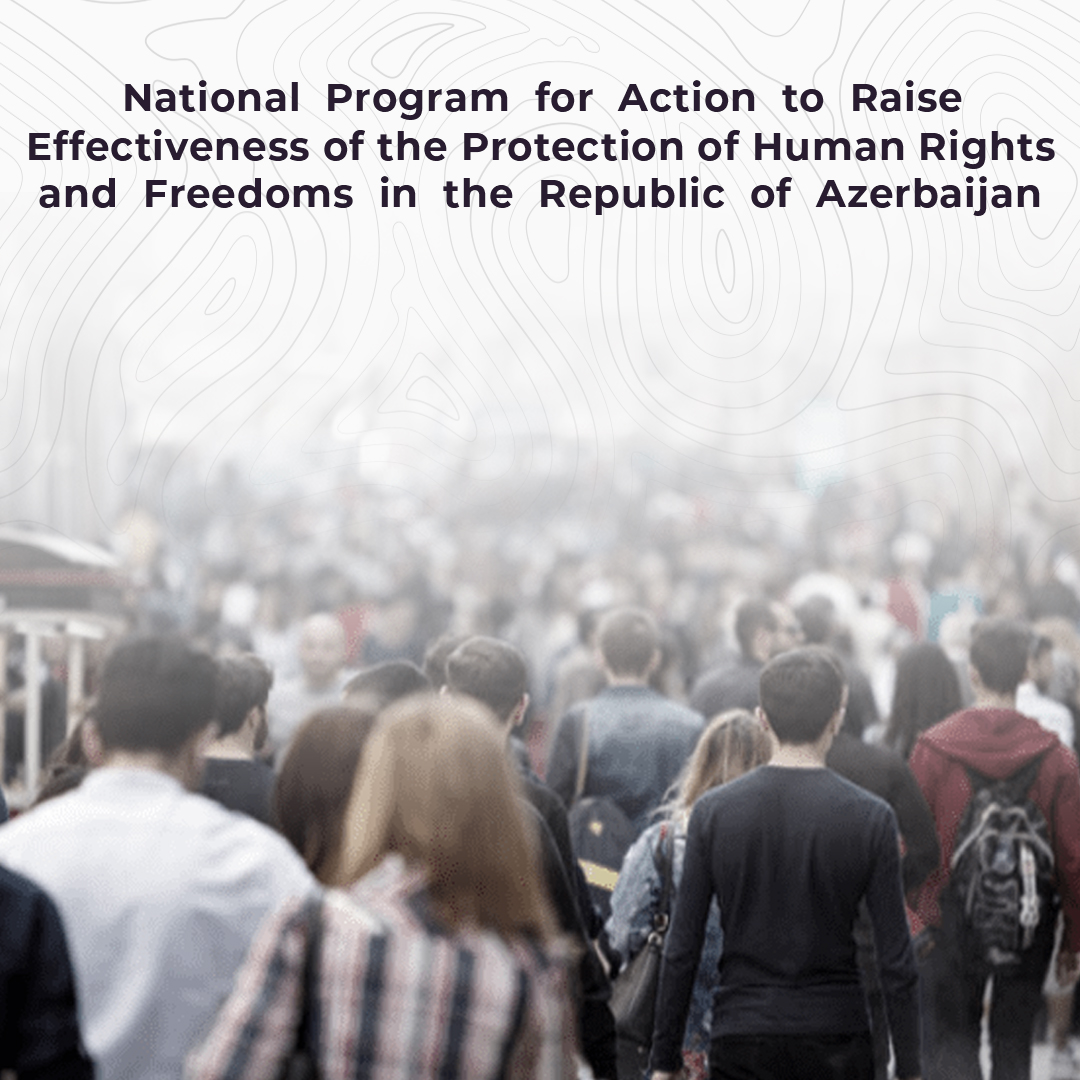
- Home page
- Commissioner
-
Activity Directions
- Mental Health and Human Rights
- Protection of the Rights of Population Groups
- Protection of the Right to Information
- Independent Monitoring Mechanism
- Legal Education
-
International Cooperation
- Cooperation with international organizations
- Cooperation with non-governmental organizations
- Study visits
- Projects
- Statements addressed to the international organizations
- “Ad hoc” reports
- Parallel and alternative reports submitted to the UN Treaty Bodies
- Oral and written statements submitted to the UN Human Rights Council
- Memorandums of cooperation
- Baku Declarations of Ombudspersons
- International Baku Forum
- Scientific Analytical Work
- Cooperation with Public and Civil Society Organizations
- Business and Human Rights
- National Preventive Mechanism Against Torture
- Protection of Human Rights
- Documents
- Media
- Live
- Contact
- Home page
- Commissioner
-
Activity Directions
- Mental Health and Human Rights
- Protection of the Rights of Population Groups
- Protection of the Right to Information
- Independent Monitoring Mechanism
- Legal Education
-
International Cooperation
- Cooperation with international organizations
- Cooperation with non-governmental organizations
- Study visits
- Projects
- Statements addressed to the international organizations
- “Ad hoc” reports
- Parallel and alternative reports submitted to the UN Treaty Bodies
- Oral and written statements submitted to the UN Human Rights Council
- Memorandums of cooperation
- Baku Declarations of Ombudspersons
- International Baku Forum
- Scientific Analytical Work
- Cooperation with Public and Civil Society Organizations
- Business and Human Rights
- National Preventive Mechanism Against Torture
- Protection of Human Rights
- Documents
- Media
- Live
- Contact
Call center
916
National Preventive Group monitored orphanages
As instructed by the Commissioner for Human Rights (Ombudsman) of the Republic of Azerbaijan, Sabina Aliyeva, members of the National Preventive Group of the Ombudsman have conducted a scheduled visit to Baku, Sheki and Lankaran cities Children’s Homes without prior notice.
The object of the visit, which based on the OPCAT and the Constitutional Law on the Ombudsman, was to investigate the living conditions and treatment standards, and to assess the situation of ensuring the rights of children of different age groups, living in similar facilities.
During the visit, separate units of the facilities, bedrooms, classrooms and recreation rooms, as well as dining room, kitchen, food storage and medical rooms were examined.
Individual meetings were conducted with the chief of the staff, psychologist of the facility, and other staff members in the Mixed Type Children’s Home in Sheki city.
During the visit to Myxed Type Children’s Home in Lenkaran, it was observed that the facilities observe sanitary and hygienic rules and disinfect the facilities and provide children and staff of the facility with individual protective equipment in order to protect them from COVID-19.
In the course of the monitoring of the Child House #1, in Baku city, in presence of the NPM psychologist, there have been conducted survey among children under the age of 10 to evaluate the knowledge of children about their rights. The result of that survey is going to be analyzed according to demographic and other descriptive indicators and taken into consideration in future activity.
During the visit made in the frame of Child Rights Month-long campaign, announced by the Ombudsman, there have been held legal awareness events for children in these facilities with full observance of the quarantine regime rules. At these events, children have been given broad information on the UN Convention on the Rights of the Child, the domestic Law on Child Rights, and the activities of the Ombudsman in the field concerned. Furthermore, the questions of children were also answered.
At the end, chief and responsible staff were provided relevant recommendations on how to improve the living conditions, medical care and documentation in accordance with national and international law.
- National preventive mechanism against torture
- Protection of the rights of population groups
- Protection of the rights of refugees, IDPs and migrants
- Protection of the rights of detainees and prisoners
- Protection of the rights of military servants
- Protection of women's rights and provision of gender equality
- Protection of child rights
- General
- Legal awareness
- Protection of the rights of older people
- Protection of the rights of persons with disabilities
- Cooperation with public and civil society
- National preventive mechanism against torture
- International cooperation
- Non-Governmental Organizations
- Public hearings
- Mass media
- Business and Human Rights
- Protection of the rights of martyrs' families and war veterans
- Protection of the rights of migrants
- Prevention of discrimination and ensuring equality
- Right to information
- Mental health
- .
-

- The Ombudsman participated in the International Conference on “Artificial Intelligence and Human Rights: Opportunities, Risks and Visions for a Better Future” in Qatar.
-

- The Ombudsman sent letter to UN High Commissioner for Refugees regarding protection of rights of persons deported from Armenia.
-

- A representative of the Ombudsman Office took part in an event organized by the Ministry of Energy.
-

- The Ombudsman’s representatives participated in the Pardon Decree Enforcement Ceremony.
-

- A series of legal awareness events were organized by the Ombudsman's Regional Centers.
-




